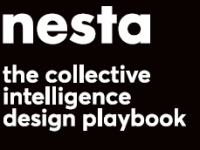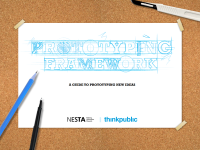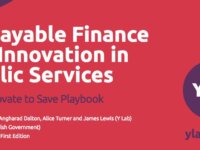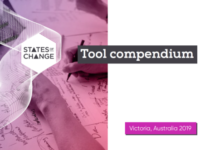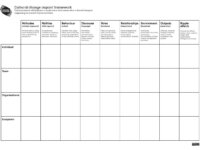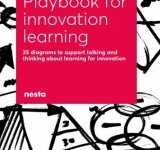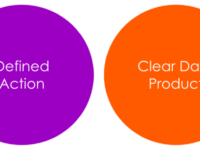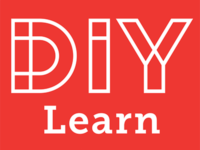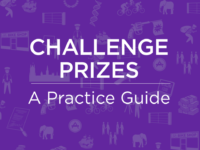Toolkit Navigator
A compendium of toolkits for public sector innovation and transformation, curated by OPSI and our partners around the world

The Collective Intelligence Design Playbook, created by Nesta, offers a wide range of tools, tactics and methods to engage collective intelligence to solve societal challenges. Through practical instructions and case studies, the Playbook presents ways to orchestrate diverse groups of people, data and technology.
It is designed to be applied by teams or groups and features an introduction to help users understand the scope and potential of collective intelligence, practical guidance to sustain…
This toolkit is a guide on how to carry out prototyping and testing. The purpose of the process is to test and improve the ideas at an early stage, before committing a lot of resources to it. The tool provides a step by step guide with simple descriptions on the techniques in each phase and things to watch out for.
The prototyping process is divided into the phases:
- Doing the Groundwork
- Prototyping phase 1
- Prototyping phase 2
- Learn and Evaluate.
The document contains short…
Our Futures is a game for discovering new ways of engaging the public in thinking about alternative futures. The basic premise of Our Futures is that participants are randomly offered a series of constraints by drawing cards and rolling a dice, which serve as a primer for imagining a participatory futures activity. The game is played either with a group of individuals competing against each other or in teams in 30-75 minutes. The game has three different gameplay models of varying scope and…
Innovate to Save was launched in February 2017 with funding from Welsh Government. The programme blends grant funding to undertake a Research and Development phase, incorporating prototyping and piloting of the organisations' ideas, followed by the opportunity to apply for an interest-free loan on negotiable terms to implement the project at scale during an implementation phase.
Repayable finance is a tool that governments can use to support innovation in public services - allowing governments…
This is a tool compendium created specifically for participants of a programme in Victoria, Australia. It is a PDF containing an organised selection of the key tools used during the sessions.
It is divided into two sections:
1. ‘tools for experimental problem solving’ and aligns with both the publisher's Experimental Continuum and Six Principles for exploring the unobvious.
2. ‘tools for setting the conditions’, which looks beyond the project challenge to other factors that can impede…
This resource includes a framework, basic guidance and canvas for use in mapping and assessing organisational readiness and capacity development, designing and developing assessment criteria for capacity-building, facilitating strategic dialogue, supporting and assessing the impact of innovation teams and labs, and enabling structured focus on what elements should be prioritised in capacity-building efforts as well as for case production and knowledge sharing.
This playbook has been created for innovation practitioners who want to spread innovation skills, methods and tools or build an innovation capacity. It covers the design of effective learning experiences, identification and articulation of learning needs, pitching a learning offer at the right level, and connection of a team or innovation strategy with learning and development.
It contains overview of 35 methods that Nesta regularly uses in its practice. Each method description includes a short…
This resource provides guidance on four criteria/factors (Specific Problem, Defined action, Clear Data Product, Accessible data) the publisher has found to be helpful for public sector organisations considering running a data analytics project. It also contains information on privacy impact assessments and research ethics.
DIY Learn is a set of online modules to help development practitioners understand and embed practical tools to support social innovation in their work. It contains a series of free, 2-hour courses as well as a trainers handbook. It was created for international development practitioners but is applicable for public sector staff as well.
Challenge Prizes: A practice guide provides practical guidance and support to help explore challenge prizes and offers guidance on designing and running a challenge prize.
The resource covers what challenge prizes are, guidance on deciding whether a challenge prize is right for your situation, and scoping and planning a prize--including a Challenge Prize Design Worksheet and Challenge Prize Schedule Worksheet.

